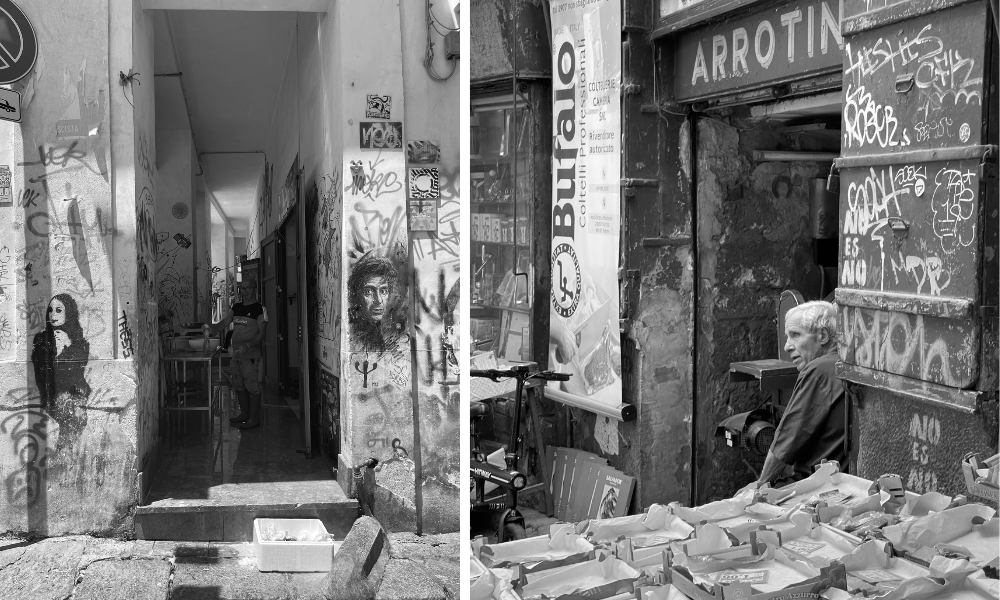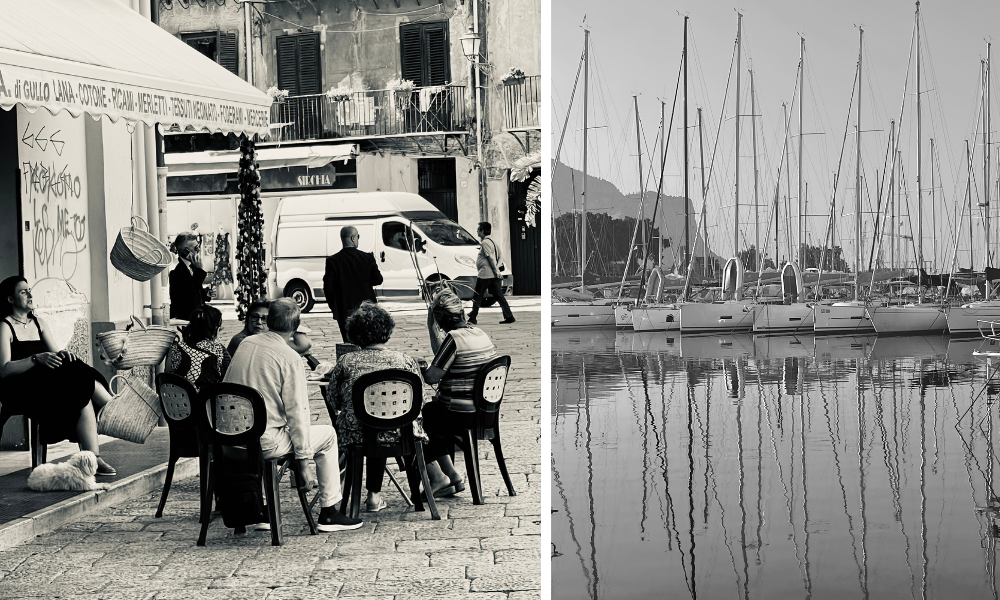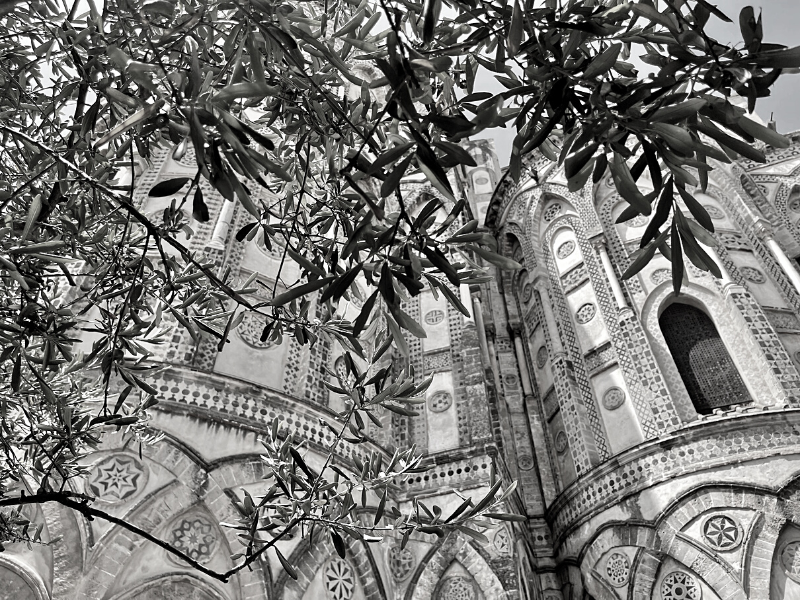If each city is like a game of chess, the day when I have learned the rules, I shall finally possess my empire, even if I shall never succeed in knowing all the cities it contains.
—Italo Calvino, Invisible Cities
Can you describe the mood of Palermo as you feel/see it?
An ever-changing city like Palermo requires an ever-changing approach, even from those who, like me, were born there. You need to have a certain mental elasticity to be able to live here, because it is a continuous stop and go. To paraphrase Kafka, I see Palermo as he saw Prague: the little mother has claws.
What is your most heartbreaking memory in this city?
After the Falcone and Borsellino murders in 1992, in our darkest moment, the people of this city reacted with great strength, taking to the streets and hanging anti-mafia protest signs in windows all over town. Right then, I was proud to belong to Palermo.

Photos © Nathalie Handal
What is the most extraordinary detail, one that goes unnoticed by most, of the city?
One aspect of Palermo people often miss at first is its ironic approach to death, most visible on November 2, when the dead are not just remembered, but celebrated. The way death is downplayed here belies the tragic image of this city.
What writer(s) from here should we read?
I am a devoted reader of Leonardo Sciascia, whose books circumnavigate Palermo while almost never going ashore. He might have observed it from afar, but he did so with enormous effectiveness. To me, he remains the writer who best helps readers decipher Sicily—which, more than just an island, is a veritable continent.
Is there a place here you return to often?
This is a very mercurial city, so going back to it means trying to understand its transformations. Palermo moves a lot but hardly budges.

Photos © Nathalie Handal
Is there an iconic literary place we should know?
Can a painting count as a place? The Triumph of Death, a fresco by an unknown artist located in the museum of Palazzo Abatellis.
Are there hidden cities within this city that have intrigued or seduced you?
I have always considered Borgo Vecchio the epitome of Palermo. It is a neighborhood right near the city center, a mere three hundred meters as the crow flies from the Louis Vuitton store, but it is the darkest heart of this city.
Where does passion live here?
Without passion it is impossible to live in Palermo. Passion and perversion are needed in equal measure.

Photo © Nathalie Handal
What is the title of one of your works about Palermo and what inspired it exactly?
My “philosophical” guide to the city is titled Palermo Is an Onion. Like an onion, you can peel away Palermo’s countless layers without ever reaching its real core. As you try to peel it, it makes you cry. When you are done peeling it, it dissolves.
Inspired by Levi, “Outside Palermo does an outside exist?”
It exists, absolutely. Palermitani often think that nothing else exists outside their city. We must disprove their belief that they are the navel of the world.
Roberto Alajmo is an award-winning writer, playwright, and journalist. He is the author of numerous books, namely Cuore di Madre (finalist for the Strega and Campiello prizes), E’ stato il figlio (finalist for the Viareggio Prize and winner of the SuperComisso and Super Vittorini awards), L’estate del ’78 (winner of the Grinzane Prize, Alassio Prize, and Moncalieri Prize), Palermo è una cipolla, L’arte di Annacarsi, Carne Mia, Repertorio dei Pazzi della Città di Palermo, Io non ci volevo venire, and La Strategia dell’Opossum. His books have been translated into French, German, Spanish, Swedish, and other languages. He currently lives and works in Palermo, where he was born in 1959.
Copyright © 2023 by Roberto Alajmo. Translation © 2023 by Nathalie Handal. All rights reserved.











